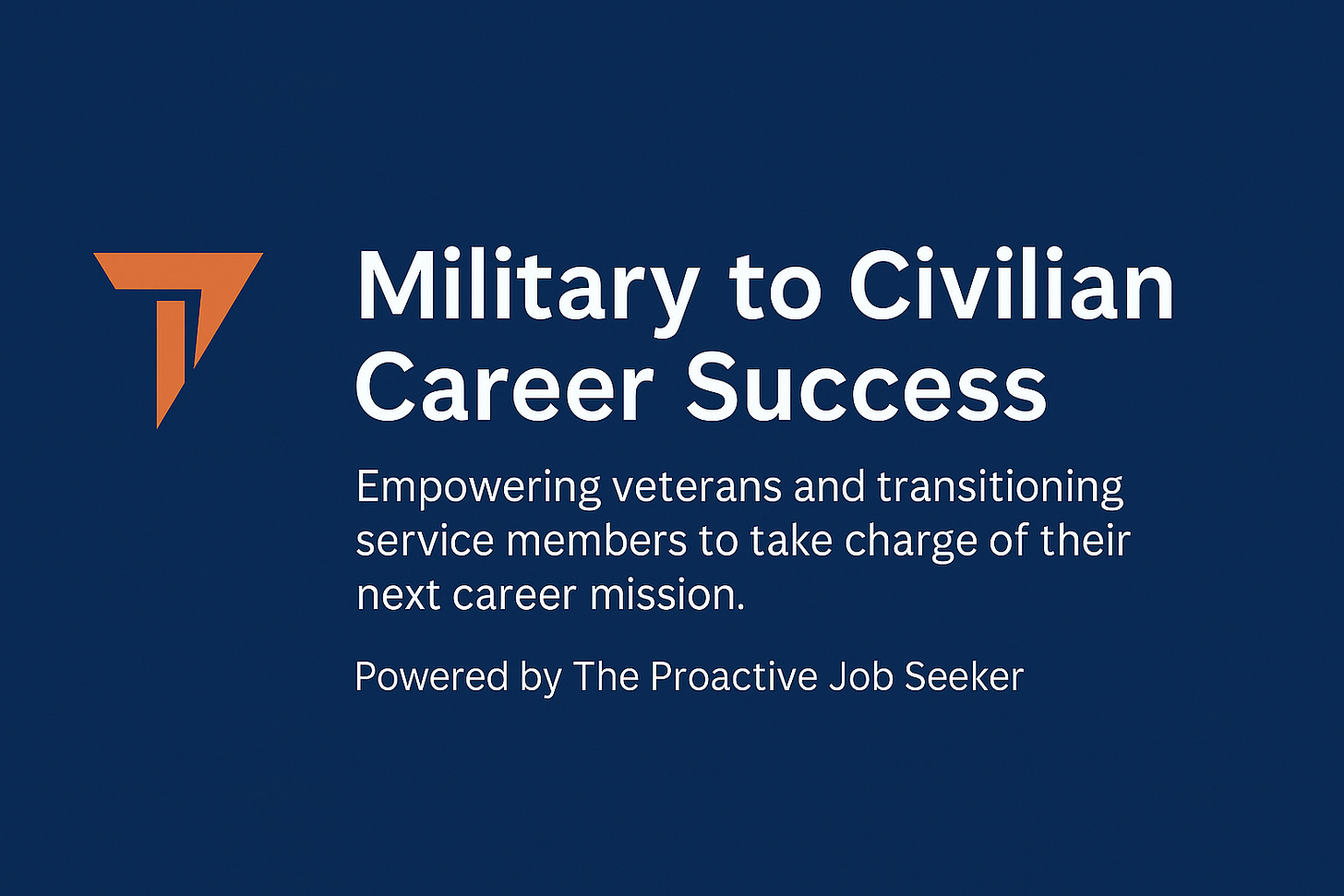Translating Your Military Value in the Civilian World - Part 3
Hello Proactive Job Seekers,
This week we're tackling the soft skills challenge—and it's a big one.
Many veterans undersell their most valuable assets because they don't recognize soft skills as skills at all. You've been developing world-class capabilities under pressure for years, but you may explain them like they're just part of the job.
Consider this common situation: You might say "I don't really have leadership experience—I just managed my team's daily operations and made sure projects got done on time."
That's not "just" anything. That's project management, resource allocation, and team leadership—skills that civilian employers pay premium salaries for.
This Week's Focus: Making Your Soft Skills Visible
The O*Net database shows that critical thinking appears in 89% of professional positions requiring some post-secondary education or equivalent experience. Coordination skills show up in 76% of management roles. Complex problem-solving is required in 68% of professional positions.
You have these skills. The question is: Can you articulate them?
The Three-Step Soft Skills Translation Process
Step 1: Recognize the Skill Stop calling your capabilities "just part of the job." Decision-making under pressure isn't routine—it's a rare and valuable skill.
Step 2: Translate the Context. Replace military scenarios with civilian equivalents:
"Coordinated between multiple units" becomes "managed cross-functional team collaboration"
"Adapted mission parameters due to changing conditions" becomes "adjusted project strategy to meet evolving requirements"
Step 3: Quantify the Impact. Always connect your soft skills to measurable business outcomes:
Time saved
Costs reduced
Quality improved
Risks mitigated
Team productivity increased
This Week's Action Assignment
Pick ONE soft skill from this list:
Decision-making under pressure
Cross-functional teamwork
Adaptive problem-solving
Accountability without micromanagement
Teaching and knowledge transfer
Now complete this exercise:
Write one military example where you used this skill (2-3 sentences)
Translate it to civilian language (remove all military jargon)
Add a quantifiable outcome (time, money, efficiency, quality)
Practice explaining it out loud until it sounds conversational
What's Coming Next Week
Part 4 will focus on quantifying your military achievements using specific frameworks to transform service accomplishments into resume metrics that civilian hiring managers understand and value.
Resources for This Week
Download the "Top 5 Military Soft Skills Employers Value" infographic from this week's LinkedIn post
Use the STAR method worksheet I shared in Part 1 to structure your soft skills examples
Check O*Net for your target roles to see which soft skills they prioritize
Quick Question for You
Which military soft skill do you find hardest to explain to civilian employers? Hit reply and let me know—your challenge might become next week's solution.
Remember: Right Action + Proaction = Job Search Success.
Your proactive step this week is recognizing that your soft skills aren't just valuable—they're often the deciding factor between you and civilian candidates.
Talk soon,
Lee Gamelin
Job Search Success Strategist
The Proactive Job Seeker
P.S. If this newsletter helped clarify your soft skills value, forward it to a fellow veteran who's also transitioning. Sometimes we need to hear these truths from multiple sources before they sink in.
Connect with me: LinkedIn | Substack | Medium
#MilitaryTransition #VeteranJobSearch #SoftSkills #ProactiveJobSeeker #MilitaryToCivilian
You're receiving this because you subscribed to The Proactive Job Seeker newsletter. Unsubscribe anytime.



